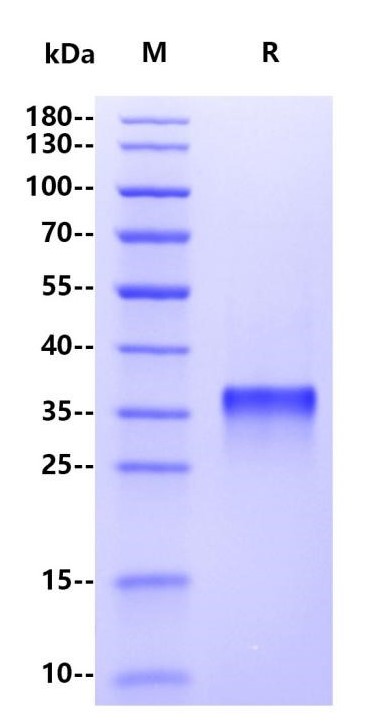PSA (prostate-specific antigen) is a single-chain protein containing 237 amino acids, belonging to the tissue-specific chymotrypsin-like serine protease family, which can break down the main mucin in semen and liquefy semen. PSA is tissue specific and only exists in the cytoplasm of human prostate acinar and ductal epithelial cells. PSA is not tumor-specific. Prostatitis, benign prostatic hyperplasia, and prostate cancer all lead to an increase in total PSA levels (free PSA plus combined PSA).The main function of PSA is to decompose the colloidal protein in semen, liquefy the colloidal semen and enhance sperm mobility. Small amounts of PSA can leak into the blood from the prostate. However, the increase of PSA in serum is seen in pathological states of the prostate, such as prostatitis, benign prostatic hyperplasia and prostate cancer. This product is the recombinant human PSA protein expressed from human 293 cells (HEK293).
